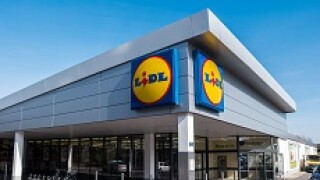Germany
-
Volkswagen Bank has belatedly joined the list of banks whose Pillar 2 requirements were posted on the European Central Bank's website this week. It had initially not consented to its targets being published.
-
Korean Housing Finance Corporation (KHFC) issued its first €1bn-sized covered bond and first negative yielding Asian covered bond on Wednesday. The strong reception was in keeping with two German Pfandbriefe also issued this week by Deutsche Apotheker- und Ärztebank (Dapo) and Sparkasse Pforzheim Calw.
-
Few MTN issuers have so far issued in the Libor-replacing euro short term rate (€STR) format, with deals limited so far to supranationals, agencies and, this week, a sub-sovereign. Some bankers blame the 2017 EU Prospectus Directive for tightening up the rules on adding new indices to programmes, leaving non-exempt issuers on the sidelines.
-
The Loan Market Association is set to restart its Schuldschein working group in February, with a workstream addressing credit restructuring. This is an early sign that the market’s heavyweights are taking this issue — which has damaged the Schuldschein’s reputation in some quarters — seriously.
-
Deutsche Apotheker- und Aerztebank (Dapo) underlined just how strong the primary covered bond market is on Thursday by wrapping up a busy week's supply with what was arguably the tightest German deal of the year so far.
-
Korean Housing Finance Corporation (KHFC) issued its first €1bn-sized covered bond on Wednesday and priced the deal inside fair value. At the same time, Société Générale issued a €1bn 10 year green covered bond flat to its curve with eye-catching demand.
-
German supermarket chain Lidl has raised a £515m-equivalent loan from a consortium of Chinese and Taiwanese lenders for two of its European subsidiaries, in the company’s first outing in Asian capital markets.
-
LBBW has revealed that most investors in its latest green bond were signatories to the UN Principles for Responsible Investment. The novel disclosure offers a ‘more reliable’ way of describing green participation in new bond issues, according to the bank.
-
The European Central Bank launched a strategic review of its monetary policy strategy on Thursday, but otherwise kept its fairly dovish stance on eurozone rates more or less unchanged.
-
Landesbank Baden-Württemberg (LBBW) became the first issuer of non-preferred senior bonds in green format in sterling this week. The German lender took advantage of favourable market conditions to print in line with other recent sterling issuers.
-
Delivery Hero’s €1.75bn convertible bond, the largest in EMEA for five years, has provoked concern from some investors that the market may be mispricing risk, despite the popularity of the deal.
-
DIC Asset, the German commercial real estate company, has raised €110m to finance the acquisition of new properties, following a capital increase supported by Deutsche Immobilien Chancen and RAG Stiftung.












